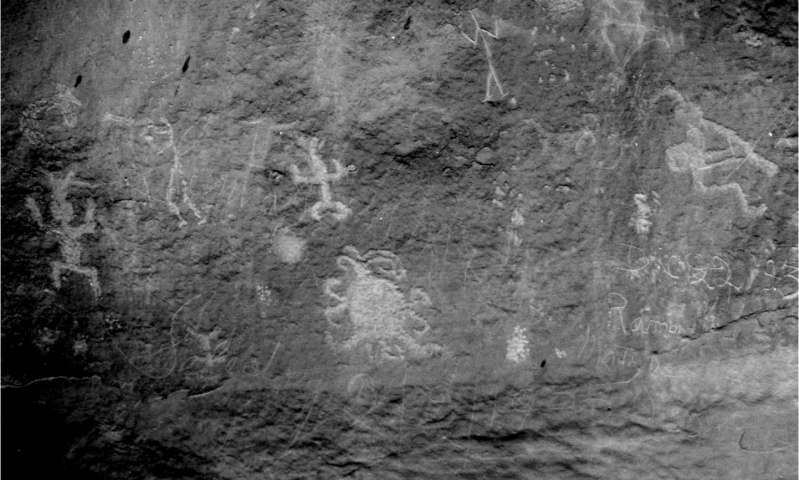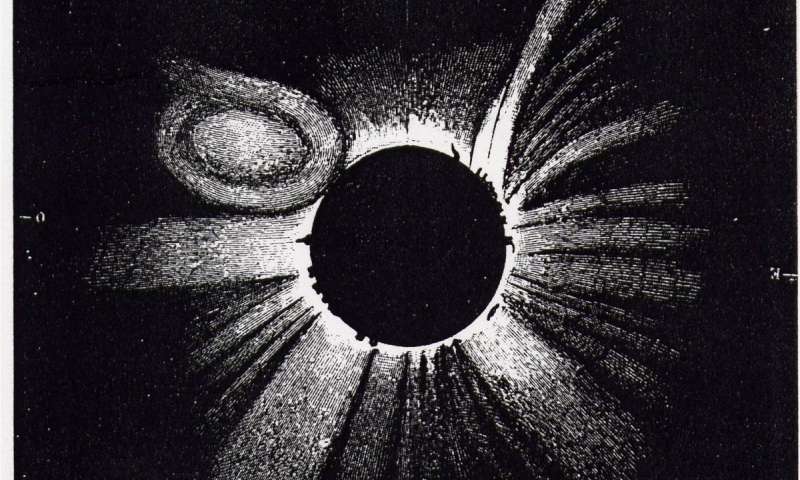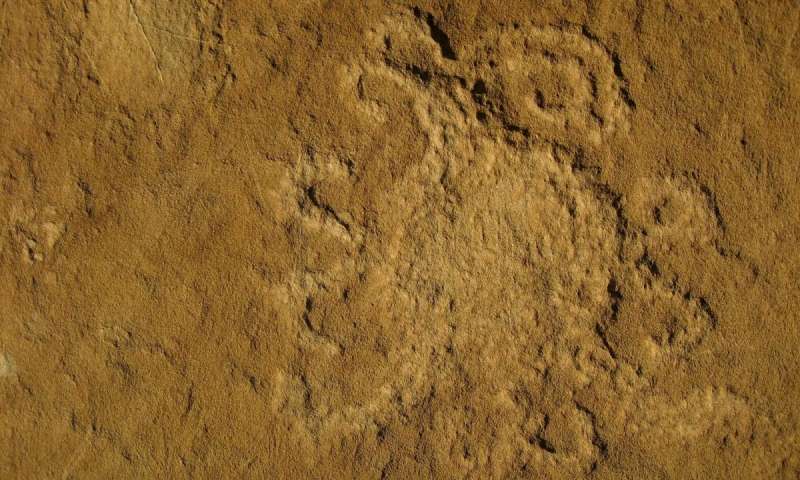A petroglyph in New Mexico’s Chaco Canyon may represent a total eclipse that occurred there a thousand years ago.
The petroglyph – carved in a rock by early Pueblo people and discovered in 1992 – is a circle that resembles the sun’s outer atmosphere known as its corona, with tangled protrusions looping off the edges. This object may illustrate the total eclipse of the sun that occurred over the region on July 11, 1097.
This possible eclipse petroglyph on Piedra del Sol is the only one we know of in Chaco Canyon.

The free-standing rock hosting the possible eclipse petroglyph is known as Piedra del Sol. I t also harbors a large spiral petroglyph on its east side that marks sunrise 15 to 17 days before the June solstice. A triangular shadow cast by a large rock on the horizon crosses the center of the spiral at that time. Such a phenomenon may have been used to start a countdown to the summer solstice and related festivities.

In addition to the spiral petroglyph, the east side of Piedra del Sol contains a bowl-shaped depression where Chacoans likely left offerings. The southwest side of the rock faces a small butte on the horizon that marks the December solstice event, and the rock also has carved steps, indicating it likely had some kind of a ceremonial importance.

I think it is quite possible that the Chacoan people may have congregated around Piedra del Sol at certain times of the year and were watching the sun move away from the summer solstice when the eclipse occurred.













[…] Source : Petroglyph of ancient total solar eclipse on the mysterious Piedra del Sol in Chaco Canyon – Stran… […]